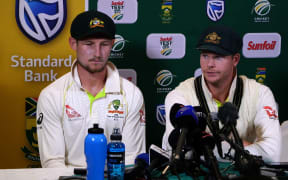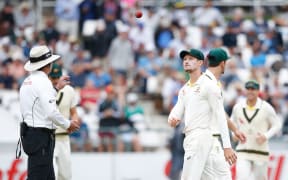Ball tampering is in the news again this weekend with Australia captain Steve Smith's admission that he formulated a plan to alter the ball during the third Test against South Africa in Cape Town.
Smith and vice-captain David Warner have stepped down from their positions for the remainder of the match, both have been fined and Smith is banned for the final Test of the series.
But ball-tampering is not new and Australia are far from alone in trying it.
New Zealand has also engaged in the practice, with former Black Caps Chris Pringle and Martin Crowe admitting - after they retired - to gouging the ball in a test against Pakistan in 1990.
Here are five earlier episodes that made headlines.
Mike Atherton: England v South Africa, Lord's - 1994
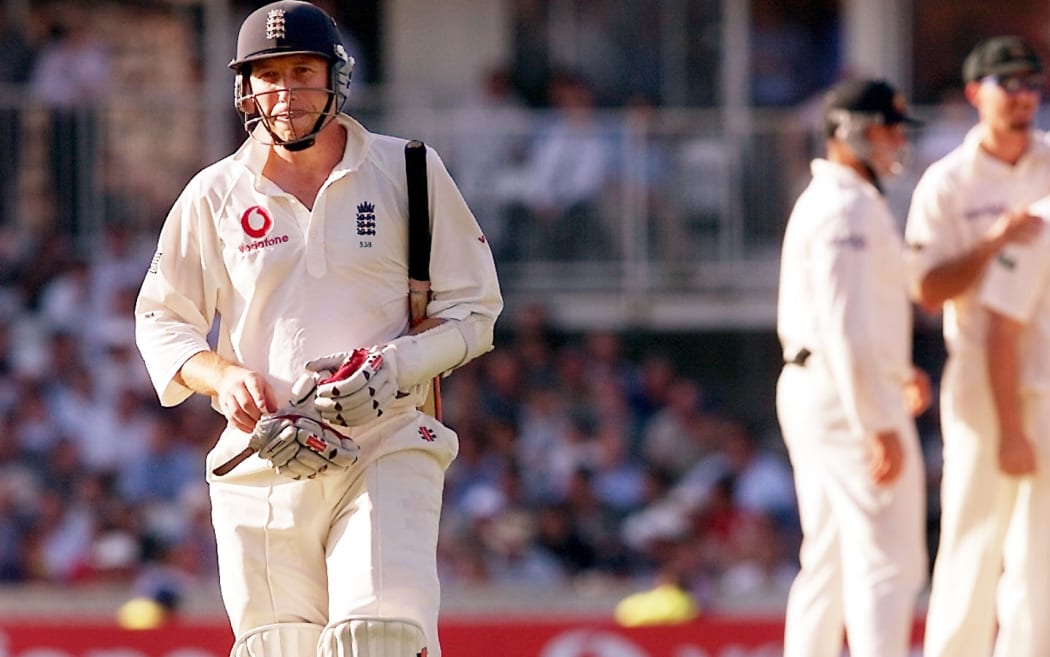
Mike Atherton in 2001. Photo: AFP
England captain Mike Atherton was in the crosshairs in 1994 when he was accused of ball-tampering during the Lord's Test against South Africa.
After TV pictures appeared to show him applying dirt to the ball, Atherton insisted he had only "put some dust in my pocket from a used pitch... to keep my hands and the ball dry".
His defence was that, in trying to keep the moisture off the ball, he was therefore seeking to maintain its condition, rather than alter it.
There are varying accounts of exactly what Atherton told match referee Peter Burge, who chose a fine rather than a ban.
Punishment: Atherton fined £2000
Sachin Tendulkar: South Africa v India, Port Elizabeth - 2001
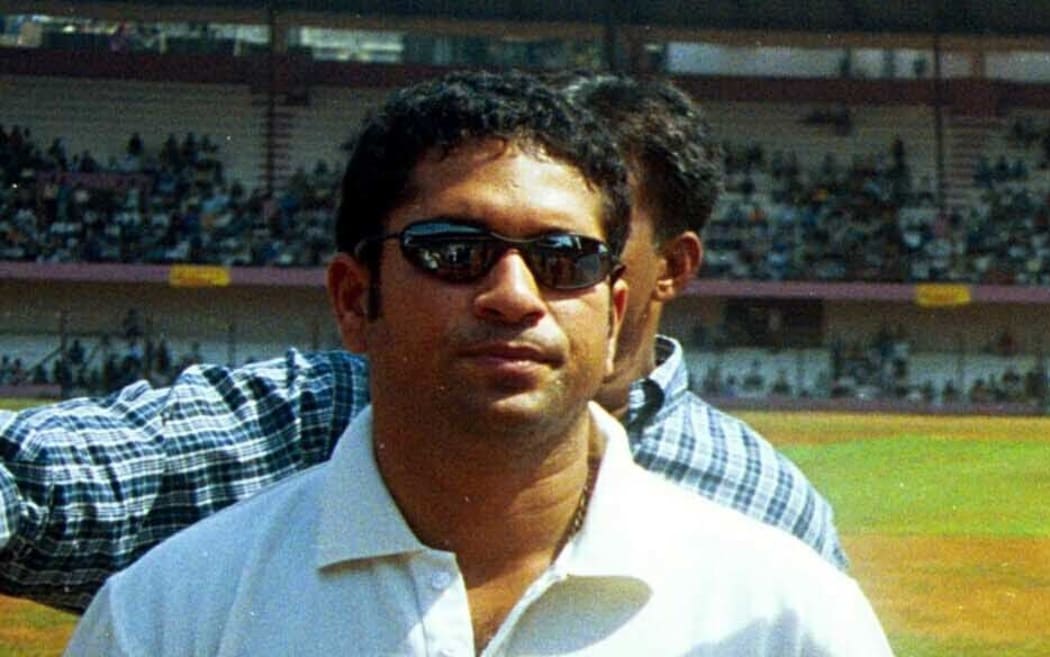
Legendary Indian batsman Sachin Tendulkar. Photo: AFP
Legendary India batsman Sachin Tendulkar was given a suspended one-match ban by match referee Mike Denness, after being found guilty of ball-tampering based on television footage during the second Test against South Africa.
Tendulkar was shown removing a piece of grass from the ball, and the International Cricket Council eventually decided this amounted to cleaning it without the umpire's permission rather than ball-tampering and so overturned the ban.
However, that was not the end of the controversy as the Indian cricket board refused to accept former England captain Denness as match referee for the third Test and it proceeded but was declared unofficial.
Punishment: Suspended one-match ban, overturned on appeal
Inzamam ul-Haq: England v Pakistan, The Oval - 2006
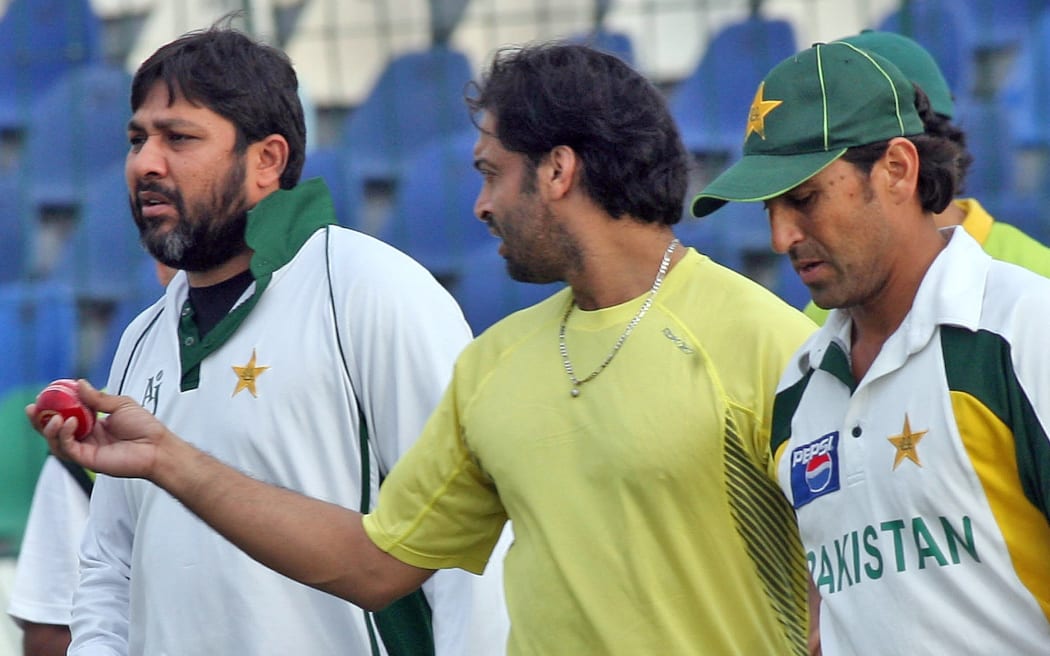
Pakistani cricket team captain Inzamam-ul-Haq, left, with players Younis Khan, right, and Shoaib Akhtar in 2006. Photo: AFP
During the fourth day of the fourth Test between England and Pakistan, umpires Darrell Hair and Billy Doctrove held up play to call for a box of balls, and it soon became apparent that they had decided the tourists had illegally altered the condition of the ball.
The umpires awarded five penalty runs to England and offered them a replacement ball.
Bad light forced the players off shortly afterwards, and when the game resumed after tea Pakistan initially refused to take the field in protest, resulting in the first forfeited match in Test history.
Captain Inzamam-ul-Haq was held responsible for his team's actions but then cleared of the ball-tampering charge by an ICC tribunal. He was, however, banned for four matches for bringing the game into disrepute by refusing to resume play.
The result of the match was later changed to a draw, then altered again to an England win.
Punishment: Inzamam banned for four matches
Shahid Afridi: Australia v Pakistan, Perth - 2010

Pakistani limited over cricket team captain Shahid Afridi in 2010. Photo: AFP
Pakistan captain Shahid Afridi was found guilty of ball-tampering during the fifth and final one-day international against Australia at the Waca in 2010, after he was caught by television cameras apparently biting the ball.
It was reported to the on-field umpires by the TV umpire and, after discussions with Afridi, the ball was changed. Pakistan lost the game, and series, 5-0.
Afridi's initial explanation was that he had been "trying to smell it and how it was feeling" but he admitted later he was "ashamed" of his actions, which had been "in the heat of the moment".
Punishment: Afridi banned for two T20 matches
Faf du Plessis: Australia v South Africa, Hobart - 2016

South Africa's cricket captain Faf du Plessis in 2016. Photo: AFP
The South Africa captain was caught on camera sucking on mints before using his saliva to shine the ball during the second Test against Australia.
Du Plessis was found guilty of ball-tampering by the International Cricket Council. He had previously been fined half his match fee for scuffing the ball on the zip of his trousers against Pakistan in 2013.
The charge did not result from any accusations by Australia but vice-captain David Warner told reporters afterwards: "We hold our heads high and I'd be very disappointed if one of our team members did that.
"The rules are in place for a reason. If you're not going to use them why bother having them?
"If you're going to overstep the mark, be prepared to get fined and miss Test matches."
Punishment: Du Plessis fined 100% of his match fee and given three penalty points
- BBC


